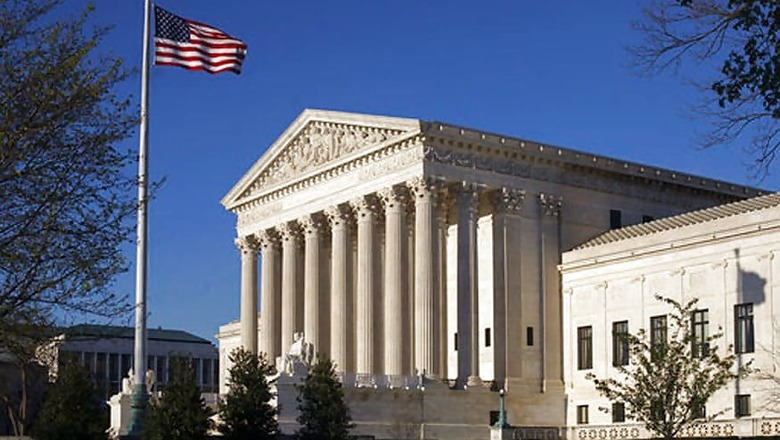
views
People of Praise, a self-described charismatic Christian community, has faced renewed interest since US President Donald Trump put one of its purported members, Judge Amy Coney Barrett of the 7th US Circuit Court of Appeals, on his shortlist of candidates for elevation to the Supreme Court.
The group describes itself as an ultraconservative group with a mixture of Roman Catholic and Pentecostal traditions. Until 2018, it used the term ‘handmaid’ for its female leaders.
The group has declined to confirm or deny whether Barrett was a member since a New York Times article in 2017 said she was in the group, citing unnamed current and former members. It says it leaves it to members to disclose any involvement. At the time, Barrett did not respond to requests for comment from the Times.
The group’s spokesman, Sean Connolly, told Reuters that women are not considered subservient in People of Praise and that many hold leadership roles, such as directing schools and ministries.
Barrett did not respond on Tuesday to requests for comment about her membership of People of Praise made through a clerk at the 7th Circuit. Sharon Loftus, a judicial assistant to Barrett, said in an email the judge’s policy was not to give interviews or comments to the media.
People of Praise has about 1,700 members in 22 cities in the United States, Canada and the Caribbean, according to its website, and was founded in 1971 in South Bend, Indiana, also the home of the Catholic-led University of Notre Dame.
“We admire the first Christians who were led by the Holy Spirit to form a community,” the website says, tracing its origins to the late 1960s when students and faculty at Notre Dame experienced “a renewal of Christian enthusiasm and fervor, together with charismatic gifts such as speaking in tongues and physical healing.”
Its most devoted members make a lifelong commitment to the group, known as a covenant.
From 1970, women with leadership roles in the organization were called handmaids, but that changed following the popular 2017-to-present Hulu television series “The Handmaid’s Tale,” based on a 1985 book by Margaret Atwood. The dystopian story is set in a future United States where the rules of the male-dominated society are based on the leaders’ twisted interpretation of Old Testament scriptures.
“Recognizing that the meaning of this term has shifted dramatically in our culture in recent years, we no longer use the term handmaid,” the group said in 2018, without specifically attributing the change to the show.
Coral Anika Theill, a former People of Praise member, has been strongly critical of the group, calling it a “cult” and saying in an interview women are expected to be completely obedient to men and independent thinkers are “humiliated, interrogated, shamed and shunned.”
“A lot of us suffered Stockholm syndrome and many of the women were on anti-depressants and tranquilizers,” said Theill, who last year wrote a blog post entitled “I lived the Handmaid’s Tale.” She added that she planned to call every US senator to oppose Barrett should she become Trump’s nominee.
Reuters could not independently verify her account. When asked about Theill’s allegations, People of Praise spokesman Connolly said the group followed Christian teachings that “men and women share fundamental equality as bearers of God’s image.”
“We value independent thinking,” Connolly said.
Thomas Csordas, a scholar of comparative religion at the University of California, San Diego, said People of Praise was “very conservative” but that he would not consider it a cult, adding that some of the charismatic Christian communities he has researched were more authoritarian than People of Praise.
In popular culture, the word cult can connote brainwashing and authoritarianism, he said.
“My position to the press was that People of Praise is best described not as a cult but as a religiously-based ‘intentional community,’” Csordas said in an email.
“When I first encountered Atwood’s book, I was frankly jolted by the similarity of terminology to that prevalent in some of the Catholic charismatic ‘covenant communities’ I had been studying,” Csordas wrote in a 1996 paper called ‘A Handmaid’s Tale,’ without specifically referencing People of Praise.




















Comments
0 comment